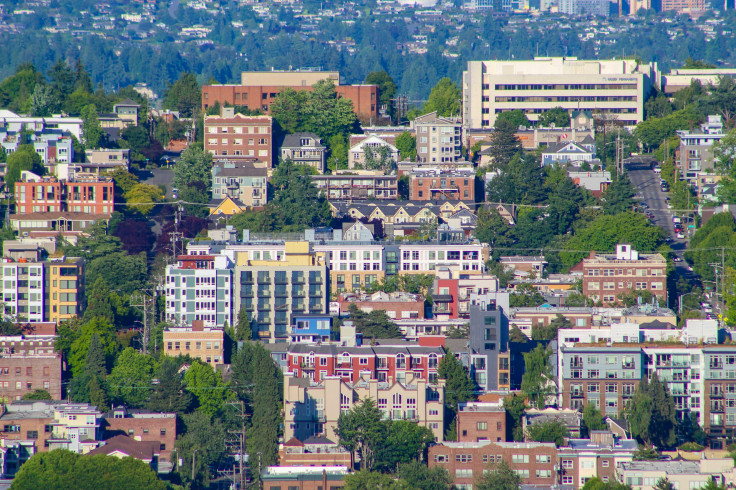
The Supreme Court refused to reinstate a voting map for the Washington State Legislature that a federal judge had found discriminated against Hispanic voters.
The case arose from a lawsuit by Hispanic voters who challenged a voting district in the Yakima Valley region, which had been drawn by the state's independent redistricting commission after the 2020 census. The plaintiffs said the district violated the Voting Rights Act by diluting their ability to elect their preferred candidates, The New York Times reported.
In 2022, voting rights groups claimed in a lawsuit that legislative maps redrawn after the 2020 census intentionally split Latino voters into several districts in the Yakima Valley region. The groups said the redistricting commission created a "facade Latino opportunity" but in fact diluted Latino voting power, according to Courthouse News Service.
After rejecting the map in 2022, and the Legislature failing to require the commission to reconvene to draw a new map, Judge Robert S. Lasnik of the Federal District Court in Seattle, chose one submitted by the plaintiffs that redrew 13 of the state's 49 voting districts. Some observers said the changes generally advantaged Democrats.
"The court finds that the adopted map does not meaningfully shift the partisan balance of the state and that it was not drawn (or adopted) purposely to favor one political party over the other," he wrote.
In addition, the Judge also argued that the state impaired the ability of Latino voters in the area to elect their candidate of choice on an equal basis with other voters.
"Especially in light of the evidence showing significant past discrimination against Latinos, ongoing impacts of that discrimination, racial appeals in campaigns and a lack of responsiveness on the part of elected officials, plaintiffs have shown inequality in electoral opportunities in the Yakima Valley region," the judge said.
Now, after the U.S. Court of Appeals for the Ninth Circuit in San Francisco refused to pause the judge's ruling while the appeal moved forward, a Republican lawmaker and two voters asked the Supreme Court to intervene and to reject, at least in the short term, what their expert witness called a bizarrely shaped district, The Times reported.
"Far from preserving the existing enacted map as much as practical, as binding precedent demands, the remedial map here made sweeping and needless alterations— almost all uniformly benefiting one political party," Attorney Jason Torchinsky, who represented the Republican group, wrote in their emergency appeal.
The emergency application noted that the percentage of Hispanic voters in the district created in response to the voters' lawsuit was slightly lower than in the one it challenged.
In response, the voters who had challenged the old map said the percentages were outdated and irrelevant, as the percentages alone do not demonstrate voting power. They urged the court to deny the Republicans' stay request, arguing that the group did not have standing to challenge the new map and accused them of presenting the court with arguments it did not raise in the lower court.
The Supreme Court offered no reasons for its decision or the order, nor any dissents were provided, as it is customary when it acts on emergency applications. Its order allows the state to conduct its 2024 elections under the remedial legislative map.
© 2025 Latin Times. All rights reserved. Do not reproduce without permission.





